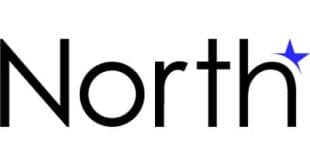Gideon Samid • gideon@BitMint.com
When the news spread in 1914 that Archduke Franz Ferdinand of Austria had been assassinated in Sarajevo, few, if any, had the foresight to envision the colossal consequences that would spring from this single act. But this spark ignited a horrific chapter in world history: World War I.
Ninety-nine years later, on a Mediterranean island not too far from Sarajevo, the European Union directed a money grab against bank depositors. And within a week of that event, an obscure term, “Bitcoin,” became a household name. The age of digital money is upon us.
The events that will unfold from now on will relate to that island nation, Cyprus, much as the events of 1914-1918, and beyond, are drawn from Sarajevo. Indeed, The Economist predicts that Bitcoin will do to the banking and payment industries what Napster did to the music industry: shake the old paradigms, and construct a new order.
Three factors draw depositors into banks: interest, security, and convenience. Interest dried up in the wake of the 2008 economic crisis and its countermeasures. Convenience is served by smart-phone access to one’s accounts—at the price of decreased security from hacking exposure. The financial industry has suffered painful blows in recent years as security has been brought into question. And then Cyprus happened, and, overnight, depositors in Europe and in the States have experienced an alarming erosion in their confidence in the banking system.
“FDIC notwithstanding,” screamed the blogosphere, “banks can limit withdrawals, issue IOUs, and otherwise confiscate the wealth of their depositors.” Depositors may pour their money into gold; others may stuff cash into the mattress. But increasing numbers of disenchanted depositors are converting their wealth into digital formats. Bits, you see, can be securely self-stored. Billions of dollars in bit money can be placed on a tiny microchip, and protected with state-of-the-art encryption available to anyone for free. Bit money can be backed up, and is readily transacted. And it’s clearly more secure to carry your money in duplicates under your personal control—compared to relying on banks to keep their doors open. And, of course, it is more convenient.
The rise in the price of Bitcoin this spring says it all. Bitcoin is a rogue currency, devoid of any central authority and hopelessly unstable. However, its success has spurred interest in competitive products, and before long depositors here in the States and elsewhere will have a choice of digitized dollars to choose from. Central banks are likely to issue a compliance standard, and the option to close checking accounts and other zero-interest or near-zero-interest accounts will increase in popularity for reasons of security and convenience. To survive, banks will have to offer sufficient interest rates to counterbalance the perceived risk and reduced convenience of conventional cash. Similarly, all the prevailing payment apparatuses will have to accommodate digital money.
Soon enough, the security advantage of digital money will make this new payment option the preferred one. The reason is simple: Today, account-based payment by its very nature exposes both the payor’s account and the payee’s account to hackers. And we all know what an unacceptable state of insecurity the payments business is in today. By contrast, passing along a string of bits is akin to passing a banknote in a brick-and-mortar store. All that the merchant needs to validate is the money itself, not the payor. No account information is exposed, and the most a digital thief can hope to do is to steal the transacted sum of money.
Some years ago, I invested money and effort into writing a DOS-based accounting system, while scoffing at the embryonic attempts by Microsoft to promote a Windows-based operating system. Alas, when my package was ready to go, I couldn’t give it away. No one bought DOS any more. The countless garage shops that are busy coding and developing the next electronic wallet should pay attention to history. The turtle steps by which a revolution commences are misleading. It kicks off like mad following a Sarajevo-like tipping point.
And to the Big Boys in payments today: Consider another king of past technology. The mistake Kodak made was to underestimate the speed of the digital-photography revolution. The wise among you will interpret the Cyprus-Bitcoin events as the herald of a new marketplace.




